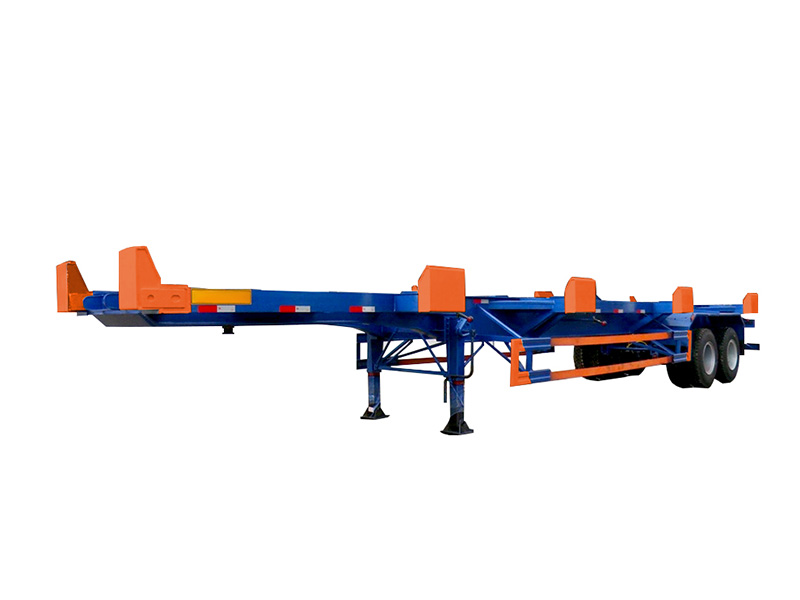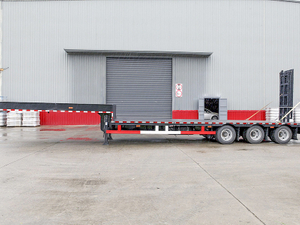T/WhatsApp: +86 13920882353
E: sales@anfida.com.cn
E: sales@anfida.com.cn
No.13, Siwei Road, Dongli Economic Development Zone, Tianjin, China
Views: 0 Author: Site Editor Publish Time: 2025-07-03 Origin: Site








Towing a trailer comes with great responsibility, and one of the most important aspects of towing is ensuring that your trailer brakes are properly wired. Without a functioning brake system, stopping a loaded trailer can become difficult, and in some cases, dangerous. Whether you’re installing trailer brakes for the first time or replacing an old system, understanding the correct wiring process is crucial. In this article, we’ll walk you through the steps to wire trailer brakes, provide tips on choosing the right wiring kit, troubleshoot common issues, and offer maintenance suggestions to ensure your braking system stays in top condition.

To wire trailer brakes, you need to connect the trailer’s brake system to your tow vehicle’s electrical system. This allows the tow vehicle’s brake controller to send the appropriate braking signals to the trailer. A well-wired trailer braking system ensures smooth, coordinated braking when towing, especially for heavier trailers.
When you tow a trailer, the trailer’s weight can put extra strain on your tow vehicle’s braking system. Having a properly functioning trailer brake system not only helps you control your vehicle and trailer more effectively but also ensures safety on the road. The braking system is essential for preventing accidents, particularly on downhill slopes, where both the vehicle and trailer need to decelerate in unison. Wiring trailer brakes properly is an investment in your safety and your vehicle's long-term performance.
Before diving into the installation, let’s first understand the essential components needed for wiring trailer brakes. Knowing these components will help you navigate the installation process more efficiently.
A 7-way trailer connector is the most common connector used for trailer brake wiring. It provides multiple functions, including:
Tail lights
Brake lights
Turn signals
Electric brake power
12V auxiliary power
Reverse lights
Ground connection
These additional connections in the 7-way system are crucial for trailers with electric brakes, offering more options than a standard 4-way or 5-way connector.
The brake controller is an integral component installed inside the tow vehicle. It adjusts the braking power sent to the trailer brakes. Depending on your needs, you can choose from:
Time-Delay Brake Controllers: These apply the brakes after a preset delay, which is ideal for less sensitive towing applications.
Proportional Brake Controllers: These adjust the braking power based on how hard the tow vehicle is braking, offering smoother, more responsive braking.
Proper installation of the brake controller ensures that the trailer and vehicle brake in sync.
Here’s a detailed guide on how to wire trailer brakes. Follow these steps to ensure a proper installation:
The first step in wiring trailer brakes is selecting a wiring kit. If your trailer has electric brakes, you will need a 7-way connector wiring kit. Make sure the kit contains:
A 7-way trailer connector
A brake controller for your vehicle
Brake wiring harnesses, including a ground wire, brake wire, and 12V auxiliary wire
Make sure the kit is compatible with your tow vehicle and trailer.
The brake controller is typically mounted on the dashboard of your vehicle. Here’s how to install it:
Disconnect the vehicle’s battery before beginning the installation to avoid any electrical shocks or short circuits.
Mount the brake controller in a location that is easily accessible. A typical spot is below the dashboard, where you can quickly reach it in an emergency.
Connect the brake controller to the vehicle’s electrical system. The blue wire from the brake controller should be connected to the blue brake wire from the 7-way connector.
Once the brake controller is in place, the next step is to install the 7-way trailer connector on your vehicle:
Mount the 7-way connector using a mounting bracket. A common location is beneath the vehicle’s rear bumper.
Wire the 7-way connector as follows:
White wire: Ground connection
Brown wire: Tail lights and running lights
Yellow wire: Left turn signal and left brake light
Green wire: Right turn signal and right brake light
Blue wire: Electric brake power
Red/Black wire: 12V auxiliary power for trailer battery charging
Purple wire: Reverse lights (if applicable)
Now, you need to connect the trailer’s brake wiring to the tow vehicle:
Connect the blue wire from the 7-way connector to the trailer’s brake wiring. This sends the brake signal from the vehicle to the trailer.
Ground the trailer’s brake wiring by attaching the white ground wire from the 7-way connector to the trailer’s frame.
Use zip ties to secure the wiring along the trailer’s frame and avoid any damage from road debris or wear.

Even with the most careful installation, issues can arise. Below are some common problems with trailer brake wiring and their solutions:
If your trailer brakes aren’t engaging, check the following:
Brake controller settings: Make sure the brake controller is turned on and properly calibrated.
Wiring connections: Ensure all the connections between the brake controller and the trailer brake system are secure.
Blown fuse: Check the vehicle’s fuse box for a blown fuse, which can cause a loss of power to the brake system.
Weak braking can be caused by poor connections or insufficient power supply. Here’s what to do:
Check the ground connection: A poor ground connection is a common cause of weak brakes.
Inspect the wiring: Look for frayed or damaged wires that may be interrupting the signal between the brake controller and the trailer brakes.
Test the brake controller: If your vehicle’s brake controller is malfunctioning, consider replacing it with a newer model that better suits your towing needs.
If your trailer brake magnets are malfunctioning, they may be causing intermittent braking. Here’s how to address this:
Inspect the magnets: Check for wear and tear, especially if you’ve been towing for long distances or in challenging conditions.
Ensure proper wiring: The magnets need a consistent power supply to function properly. Check for any loose connections or power interruptions.
Just like any part of your towing system, the trailer brake system requires regular maintenance. Here’s what you should check periodically:
Inspect the wiring: Over time, wires can become frayed, loose, or corroded. Regularly inspect all wiring connections to ensure a strong signal.
Test the brake controller: Ensure that the brake controller is calibrated and functions properly. Adjust the settings as needed to match your trailer's weight and the load you're carrying.
Check the brake magnets: Brake magnets can wear out over time, especially on heavy-duty trailers. Check the magnets for wear and replace them as needed.
Properly wiring trailer brakes is essential for both safety and functionality. With the right components, a well-installed brake controller, and regular maintenance, you’ll ensure that your trailer brakes perform optimally every time you tow. If you're in need of high-quality, durable trailer components, look no further than Tianjin ANJUN Trailer Manufacturing Co., Ltd., a trusted provider of trailer products. Their extensive range of trailer parts ensures that your trailer brake system is built to last.
A: The 7-way trailer connector is the best option for electric brakes, providing multiple functions like electric brake power, reverse lights, and auxiliary power.
A: Regularly inspect the wiring, test the brake controller, and check the brake magnets for wear. Keep all connections clean and secure.
A: Yes, with the right tools and wiring kit, you can install trailer brakes yourself. Follow the step-by-step guide to ensure a safe and effective installation.
A: Check the brake controller, wiring connections, and fuse box. A blown fuse or poor connection is often the cause of non-functioning brakes.
A: Brake controllers can be adjusted according to the trailer's weight and load. Use the settings on the controller to fine-tune the braking response for optimal safety and performance.